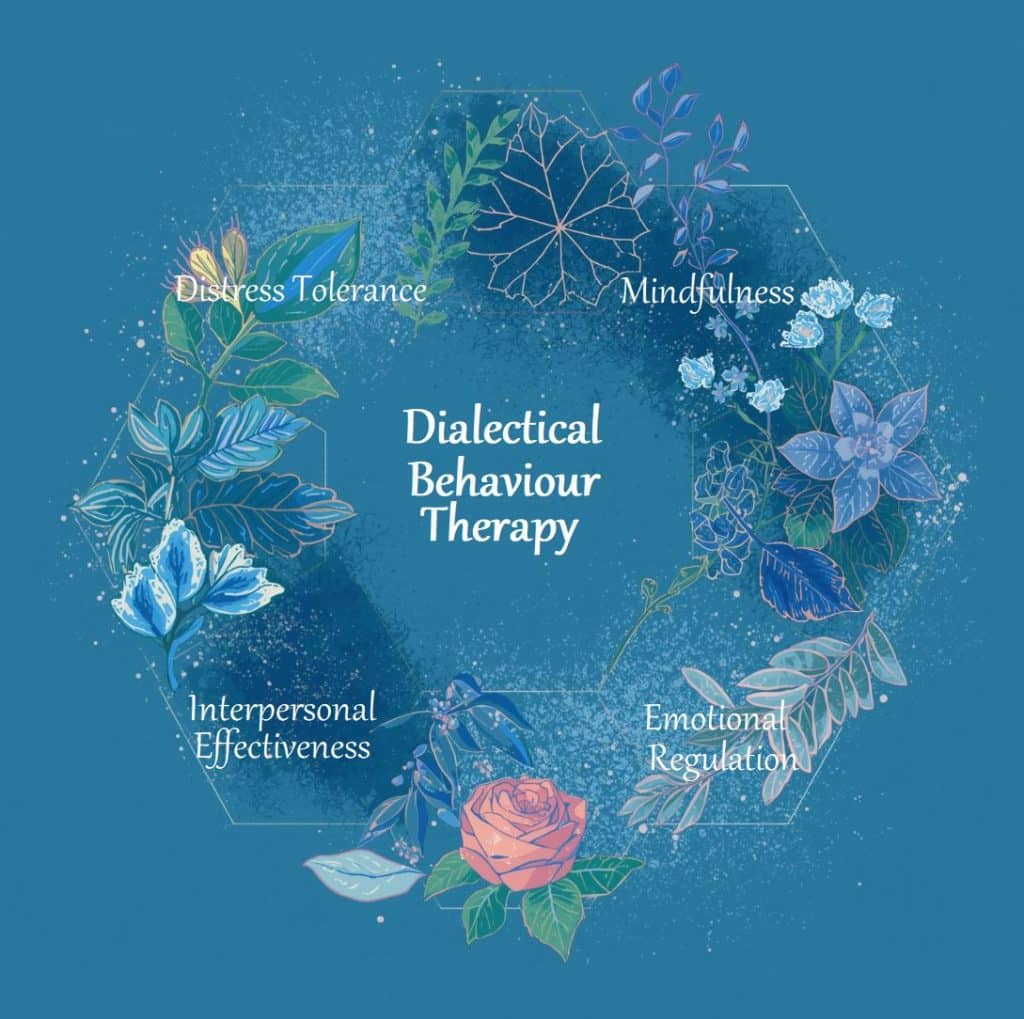
Article by Anna Keyter, Online Counselling | Photo by Anna Tarazevich
Imagine feeling overwhelmed by your emotions — anger, sadness, or anxiety — all crashing down like waves, making it hard to think clearly or stay connected to the people around you. Now, picture a way to learn skills that help you navigate those stormy feelings calmly and confidently. That’s where Dialectical Behaviour Therapy (DBT) comes in — and through online therapy and online counselling, help is easier to find than ever before. Our focus in this article is on Online Dialectical Behaviour Therapy (DBT).
Why Was DBT Created? A Story of Hope for Emotional Struggles
DBT is a type of psychotherapy that focuses on truth and opinions. A psychologist named Marsha Linehan created DBT in the late 1980s. She aimed to help women with Borderline Personality Disorder (BPD) who were battling extreme emotional highs and lows, often leading to self-harm or suicidal thoughts. But what she discovered was even bigger — these skills could help many others facing similar challenges with intense emotions, impulsivity, and difficult relationships.
Today, online Dialectical Behaviour Therapy makes this powerful treatment accessible across the globe. With online Dialectical Behaviour psychotherapists, you can learn these new skills wherever you are.
The Secret to Dialectical Behaviour Therapy: Balancing Acceptance and Change
DBT is not just about fixing what’s wrong. It’s about balancing two powerful ideas — accepting yourself as you are, and working to grow and change.
Think of it like riding a seesaw. On one side, you accept your feelings and current situation — even if it’s painful — and on the other side, you actively learn new skills and make better choices. An online psychologist can help you find that balance.
The Skills That Can Change Your Life

When you work with a psychologist and start online Dialectical Behaviour Therapy, you begin learning practical skills to handle everyday emotional storms. Here are the main ones:
1. Mindfulness — Staying Present
Mindfulness teaches you to focus on the moment. Instead of racing ahead or getting lost in worries, you learn to observe your thoughts and feelings without judgment. Practicing this in online therapy can help you stay grounded when emotions are running high.
2. Distress Tolerance — Enduring Pain
Sometimes, bad feelings are unavoidable. Distress tolerance skills help you to sit with difficult emotions without reacting impulsively. Radical acceptance is a key tool here—learning to fully accept what is happening without fighting it. This reduces suffering and gives you space to respond wisely.
3. Emotion Regulation — Managing Big Feelings
If your feelings feel overwhelmed, emotional regulation helps you understand what you’re experiencing. You’ll learn to recognise your emotional triggers, label feelings accurately, and soothe yourself. Over time, this makes your emotional reactions more manageable.
4. Interpersonal Effectiveness — Building Better Relationships
Healthy relationships are key for peace of mind. These skills teach you how to communicate assertively, set boundaries, and ask for what you need. This minimises misunderstandings, builds confidence, and strengthens your connections with others.
How Acceptance and Change Work Together — Like a Perfect Dance
Think of DBT as a dance between acceptance and change. Your online therapist guides you to honour your feelings and current situation, while also encouraging you to practice new skills. For example, you might say to yourself, “I’m doing the best I can right now,” while also working toward healthier responses.
This balanced approach helps you feel calmer, more in control, and hopeful about your future. With each step, you learn that it’s okay to accept yourself and still want to grow.
The Five Big Goals of DBT — What It Can Help You Achieve
DBT isn’t just about learning skills; it’s a complete system designed to help you in these five ways:
- Build Your Skills — Learn to handle your emotions, improve relationships, and cope with crises.
- Use Skills Every Day — Practice what you learn in real life, applying it during work, at home, or with loved ones. Online counselling can be a helpful platform where you can learn new skills.
- Stay Motivated to Change — Work to reduce harmful behaviours like self-injury, with tools to track your progress.
- Support From Your Therapist — Therapists working online can encourage you to stay motivated, so you feel well-supported during sessions.
- Make Your Environment Work for You — Adjust your surroundings or social circles to support your growth
Supporting Your Growth — Making Your Environment Work for You
One of the key parts of online Dialectical Behaviour Therapy is learning how to create a supportive environment. Sometimes, the people or situations around us can make staying on a positive path more difficult. Your online therapist can help you identify what parts of your surroundings might be holding you back—like negative influences or unhelpful routines—and work with you to make changes.
This could mean avoiding social circles that encourage harmful behaviours or finding ways to bring healthier habits into your daily life. The idea is to shape your environment so it enables your progress and keeps you motivated on your journey toward emotional balance.
Why These Skills Can Transform Your Life
Imagine waking up each day feeling more in control of your emotions, knowing you have practical skills to face whatever comes your way. You’ll be better equipped to handle stress, resolve conflicts, and build stronger relationships, and online therapy can make this more accessible.
Whether you work with a best online therapist or participate in online counselling, these skills can help you develop resilience, clarity, and peace of mind. The beauty of online DBT is that it’s flexible, accessible, and can fit into your busy life.
Ready to Take the Next Step?
If you’re tired of feeling overwhelmed or stuck in harmful patterns, online Dialectical Behaviour Therapy offers a hopeful way forward. With the support of a qualified online Dialectical Behaviour Therapist, you can learn to balance acceptance with active change, making those difficult emotions more manageable. Feel free to explore our services here.
If you are interested to learn more about CBT, you can follow this link. You can also learn more about Gestalt psychotherapy here.
References:
Dialectical behavior therapy: What is it and who can it help?https://www.health.harvard.edu/blog/dialectical-behavior-therapy-what-is-it-and-who-can-it-help-202401223009
Dialectical Behavior Therapy https://pmc.ncbi.nlm.nih.gov/articles/PMC2963469
Dialectical Behavior Therapy: Current Status, Recent Developments, and Future Directions https://guilfordjournals.com/doi/abs/10.1521/pedi.18.1.73.32771
Related Posts
Online Anger Management: Take Control of Your Emotions
Struggling with anger? Best Online Therapy offers expert online anger management...
Online Depression Therapy: Understanding mood disorders through remote counselling.
Feeling lost in depression? Discover how online depression therapy offers tools...


